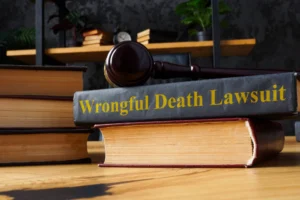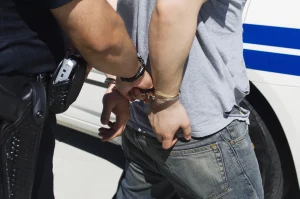Getting pulled over on suspicion of DWI in Texas is stressful, confusing, and potentially life-altering. But here’s the truth: not every DWI stop is legal. Law enforcement officers must follow strict constitutional guidelines when initiating a stop, questioning a driver, and collecting evidence. If those rules are broken, your rights may have been violated — and any evidence against you could be challenged in court.
At Guzman Law Firm, we fight for Texans who have been wrongfully stopped, searched, or arrested for DWI. If you believe your rights were violated in an unlawful traffic stop, you don’t have to face the system alone. Read on to understand what makes a traffic stop legal, what your responsibilities are, and when you should call a DWI attorney.
Call the Texas DWI lawyers at Guzman today at (956) 516-7198 for a confidential consultation.
What makes a traffic stop legal in Texas?
A police officer cannot pull someone over on a hunch or a gut feeling. Under the Fourth Amendment, stops must be supported by a legal justification. In Texas, the legal standard is called “reasonable suspicion.”
What counts as reasonable suspicion in Texas?
Reasonable suspicion means the officer must be able to clearly articulate specific facts that led them to believe a law was being violated. This is a lower standard than “probable cause,” but it still requires more than speculation.
For example, an officer might have reasonable suspicion if they observe:
- Swerving between lanes without signaling
- Driving at inconsistent speeds
- Running a stop sign or red light
- Failing to use headlights at night
- Driving significantly under the speed limit in a way that suggests impairment
Without such specific observations, a DWI stop could be considered unlawful.
Your responsibilities during a legal traffic stop
Whether a stop is legal or illegal, drivers in Texas have responsibilities they must follow to remain compliant with the law and avoid escalating the encounter.
Are you required to roll down your window during a traffic stop in Texas?
Yes. Texas law requires drivers to comply with lawful orders, which include rolling down your window enough to communicate with the officer, presenting your license, and complying with basic instructions. Refusing to do so may escalate the situation and lead to additional legal consequences.
Do you have to exit the vehicle if a cop asks?
Yes. If an officer orders you to exit your vehicle, you must comply. The U.S. Supreme Court has ruled that officers may legally require drivers (and passengers) to exit a vehicle during a traffic stop for officer safety. Refusing to exit could result in arrest.
Can a police officer take your keys during a traffic stop?
It depends. An officer cannot randomly take your keys without justification. However, if they believe you may attempt to flee, or if they have probable cause to suspect intoxication or another crime, they may temporarily take possession of your keys. This action must be tied to safety or evidence concerns.
By following instructions respectfully, you fulfill your legal obligations while preserving your rights.
What constitutes an unlawful traffic stop in Texas?
Not every stop meets constitutional standards. An unlawful traffic stop occurs when an officer pulls you over without reasonable suspicion or detains you beyond the time necessary without cause. Examples include:
- Profiling-based stops: If an officer stops a vehicle solely because of the driver’s race, ethnicity, or age, this is unlawful.
- Stops without observable violations: If you were obeying all traffic laws and there was no reasonable suspicion of impairment, the stop may be illegal.
- Prolonged detainment: Once the reason for the initial stop is addressed (e.g., a speeding ticket), officers cannot extend the stop without new reasonable suspicion.
- Pretextual fishing expeditions: While minor traffic violations can justify a stop, officers cannot use them as an excuse to search or detain without further legal grounds.
If a stop is deemed unlawful, any evidence gathered — such as field sobriety tests, breathalyzer results, or officer observations — may be suppressed in court.
What are my rights during a traffic stop in Texas?
Drivers and passengers are not powerless during a traffic stop. The U.S. Constitution and Texas law grant several rights designed to protect against abuse of power:
- Right to remain silent. You do not have to answer incriminating questions, such as “How many drinks have you had tonight?”
- Right to refuse a vehicle search (unless probable cause exists). Without your consent, a warrant, or clear probable cause, officers cannot search your car.
- Right to legal counsel. If arrested, you have the right to an attorney before questioning.
- Right against unlawful seizure. You cannot be detained longer than reasonably necessary without cause.
Do passengers have to show ID in Texas?
Passengers generally do not have to present identification unless the officer has reasonable suspicion that they have committed a crime. However, passengers must comply with orders to exit the vehicle if directed to do so for safety reasons.
Knowing your rights helps you avoid unnecessary self-incrimination and allows you to challenge unlawful police conduct later.
Why do you need a criminal defense attorney after an unlawful traffic stop?
Even if you believe your stop was legal, that doesn’t mean the state has an airtight case. DWI cases in Texas often hinge on technicalities — such as whether the officer had reasonable suspicion, whether sobriety tests were conducted properly, or whether evidence was obtained legally.
An experienced criminal defense attorney can:
- Review dashcam or bodycam footage for unlawful police conduct
- File motions to suppress evidence gathered during an unlawful traffic stop
- Cross-examine officers about their justification for pulling you over
- Negotiate to reduce or dismiss charges based on weak evidence
- Defend your rights in court if the case proceeds to trial
Without strong representation, you may face severe penalties for DWI in Texas, including license suspension, steep fines, and jail time. With Guzman Law Firm on your side, you gain an advocate who knows how to challenge unlawful stops and fight for your future.
Facing DWI charges from a bogus traffic stop? Call Guzman to fight back.
Not every DWI stop in Texas is lawful — and if yours wasn’t, the evidence against you may not hold up in court. Hiring an attorney that understands the rules around reasonable suspicion, your responsibilities, and your constitutional rights can make all the difference in your case.
If you’ve been charged with DWI after an unlawful traffic stop, don’t wait. Contact Guzman Law Firm today for a confidential case review, or call us at (956) 516-7198. We’ll fight to protect your rights, challenge unlawful police actions, and help you move forward with confidence.
More Helpful Articles by Guzman Law Firm:
- When Smuggling Becomes Trafficking
- How Texas Law Treats Driver Fatigue in Commercial Vehicle Accidents
- Why You Can Still Face Drug Conspiracy Charges without Possessing Drugs
- The Role of Confidential Informants in Federal Drug Cases
- What to Do if You’re Caught in a Border Sting Operation





